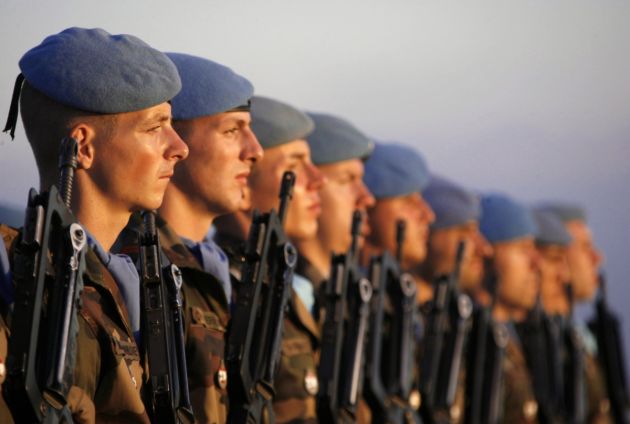UN study finds peacekeepers avoid using force to protect civilians

UNITED NATIONS, May 16 (Reuters) - United Nations peacekeeping missions routinely avoid using force to protect civilians who are under attack, intervening in only 20 percent of cases despite being authorized to do so by the U.N. Security Council, an internal U.N. study found.
"There is a persistent pattern of peacekeeping operations not intervening with force when civilians are under attack," the report by the Office of Internal Oversight Servicessaid.
"Peacekeepers are absent from many locations when civilians come under attack, and when they are present, are unable or unwilling to prevent serious physical harm from being inflicted," the 26-page report said.
Of 507 incidents involving civilians that were included in U.N. reports between 2010 and 2013, 101 sparked immediate response from peacekeepers, the report said.
Presented this week to the U.N. General Assembly Fifth Committee, which deals with the U.N. budget, the report focused on eight of 10 U.N. peacekeeping missions with a Security Council mandate to protect civilians: Lebanon, Liberia, Ivory Coast, Haiti,Democratic Republic of Congo, Darfur, Abyei and South Sudan. It excluded the newest operations in Mali and Central African Republic.
"While no mission can be expected to protect all civilians all the time, each can reasonably be expected to provide protection in areas of highest risk," the report said.
"Force was mostly likely to be used to protect civilians when troops were engaged in self-defence or defence of U.N. personnel and property."
The top 10 contributors to the U.N.'s almost $8 billion a year peacekeeping budget are the United States, which contributes 28 percent of the budget, Japan, France,Germany, United Kingdom, China, Italy, Russia, Canada and Spain.
Countries interviewed for the report that provide peacekeepers for U.N. operations said the risk to their troops was higher than they would accept. Some of them have entirely ruled out the use of force. The biggest troop contributors are India,Bangladesh, Pakistan, Ethiopia, and Rwanda.
"The reality is that the United Nations cannot fully protect civilians while the troop contributing countries do not instruct their contingents to do all they can, including using force as a last resort when civilians are under attack before them," U.N. Under-Secretary-General for Internal Oversight Services, Carman Lapointe, told the Fifth Committee on Tuesday.
The report found that operational and political constraints within missions were at odds with their legal authority and mandate to act and that some missions "perceived themselves as weak, outnumbered and stretched across vast areas, making the use of force only a paper option."
The U.N. Department of Peacekeeping Operations and the Department of Field Support said the study had missed the chance to fully assess implementation of mandates to protect civilians.
"It focuses on a last resort option - the use of force - which we should expect and hope will be a rare occurrence where missions have so many other tools at their disposal," the departments said in a statement included in the report.
"We are concerned that the approach of the report overemphasizes one element of military action and devalues the importance of political solutions and other aspects of the comprehensive approach peacekeeping operations take in implementing their protection mandate," the statement said.
Stephen Lieberman, U.S. Minister-Counselor for U.N. management and reform, told the Fifth Committee the report indicated "a broad lack of understanding by peacekeepers of what protection of civilians entails at the tactical level, a lack of commitment by mission leadership to use force in order to protect civilians, and persistent parallel lines of command between troop contributing countries and their capitals that precluded the warranted use of force."
The full report can be seen at: http://www.un.org/ga/search/view_doc.asp?symbol=A/68/787